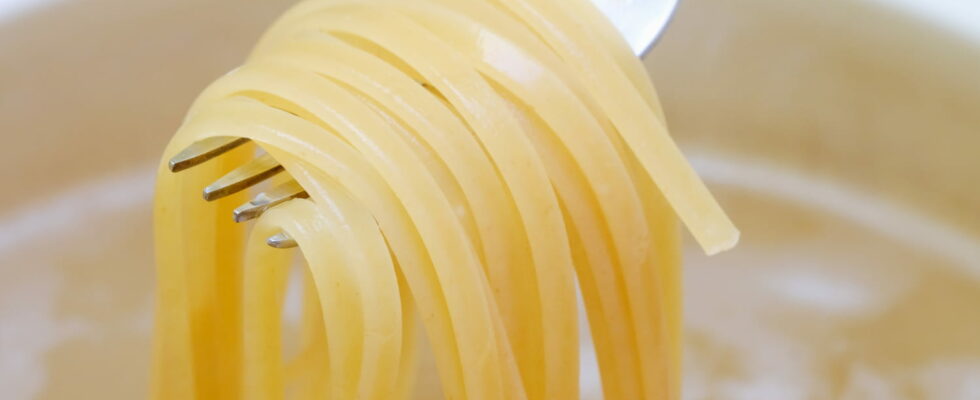Firm to the teeth but not too firm, here’s how to enjoy the best pasta! Discover this tip made in Italy to recognize when they are “al dente”.
You might imagine that the term “al dente” literally means “to the tooth” in Italian and refers to cooking pasta that remains firm to the bite. Because overcooked pasta is a cardinal sin for Italians. With this cooking, the pasta is fully cooked on the outside but remains firm on the inside, requiring more chewing. But how do you know if your pasta is cooked al dente knowing that there are so many pasta shapes and different cooking times? If some say that you have to throw a dough against a wall, and that if it stays stuck to the wall, it is because it is cooked correctly, we will prefer this much gentler and more intelligent method.
There is an unstoppable trick to recognize al dente pasta during cooking, as the Italians do. The cooking time indicated on the packet is only an indication for our transalpine friends. Italians always taste the pasta at least a minute before the time indicated on the packet and decide whether or not to remove it from the pan. The absolute indicator is taste, then sight. Take a pasta out of the pan, and bite into it. Is it both soft and firm to the bite? When you cut it in half, do you see a small white dot in the center of the dough? That’s perfect, your pasta is perfectly ready, cooked al dente!

Of course, you will have taken care, beforehand, to boil a large volume of water in a saucepan (count 1 liter of water for 100 grams of pasta and 10 grams of salt), to add the salt just after boiling and then to plunge the pasta while stirring immediately. At the end of cooking, you will not have left the pasta to soak in the water but you will have drained it immediately, and you will have reheated your pasta by mixing it with its sauce simmered in a pan.
Did you know that in addition to being tasty, cooking pasta “al dente” makes pasta easier to digest and is better for your health? In fact, we provides greater chewing effort by consuming these foods that contain starch, which will make your amylases, an enzyme that is found in saliva and allows digestion, work more slowly. Goodbye bloating! In addition, “al dente” pasta is good for keeping fit because it has a lower glycemic index, which means that the glucose it contains will be released gradually into the body, satiating us in the long term. where overcooked pasta will cause a spike in blood sugar and then insulin, which rhymes with cravings, snacking and storage of abdominal fat.
